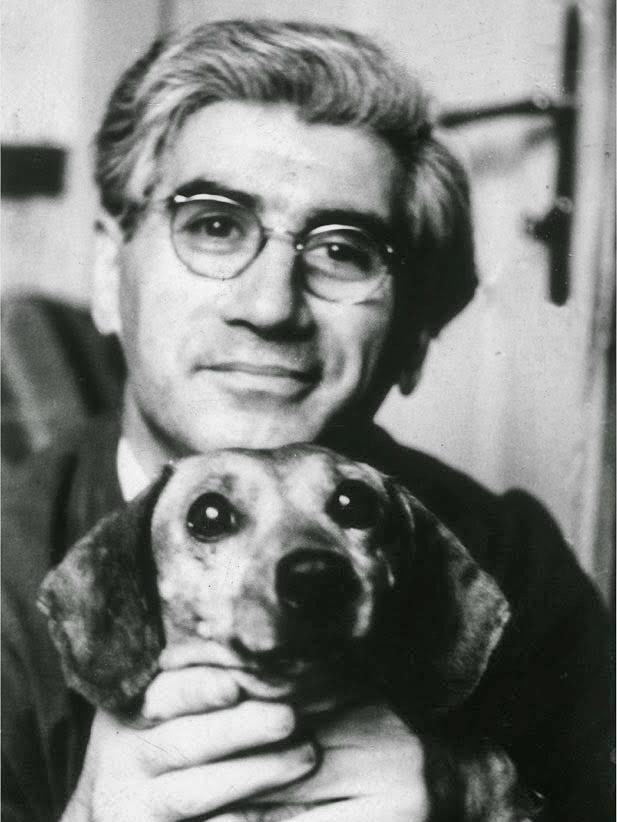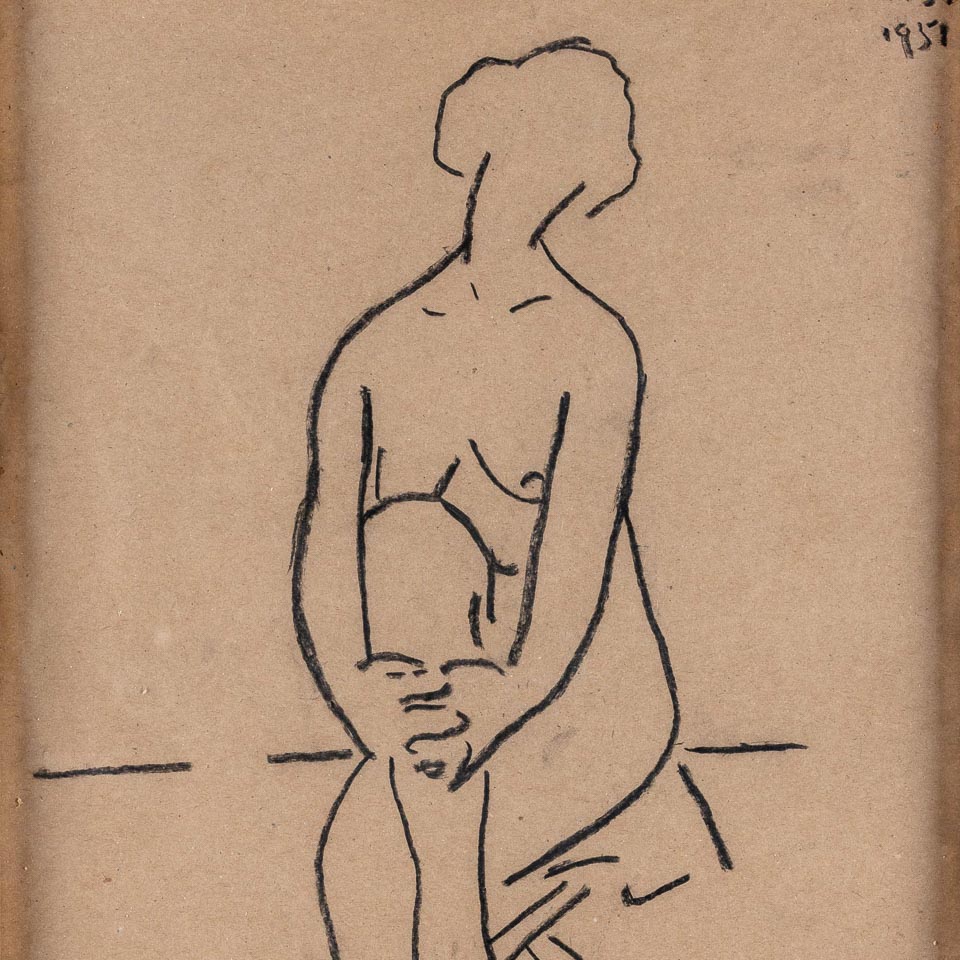Arnold Daghani (Corn)

Suceava, 1909 - Hove, 1985
The Life
He considered himself a modern misunderstood genius and this brought him countless misfortunes, making him travel the world in search of a home, but never really finding it.
The Art
He approached different styles such as expressionism, constructivism, surrealism, pop art, and at the center of every one of them, he placed the dehumanization to which he was subjected.
Liberated before the liberation
He was a Romanian-born Jew who moved with his military service to Bucharest.
various positions in advertising and transportation companies. Because of the anti-Semitic laws enacted in 1940, he lost his job and was forced to move with his wife to Chernivtsi/Cernauti, which was then under Soviet occupation.
The liberation of Bukovina by the Romanian forces led to the surrender of the two to the SS forces and their deportation to the Mikhailovka camp in Transnistria. They managed to escape five months before the liberation of the camps in 1943. In March 1944, with the help of the Red Cross, they arrived in Bucharest. In his book, “The Pitt is in the Sour-Cherries Orchard”, he recounted the tragedy of deportation and internment.
From Dagani to Daghani
Returning to Bucharest, Arnold Corn began his career as an artist, under the pseudonym Dagani, to which he added an "h" in 1959. He joined the Union of Visual Artists in 1957 when he was able to create in the socialist realist style.
Meanwhile, he became increasingly interested in religion, so he tackled Christian issues. But his interest and the concerns he brought to light, regardless of the Orthodox Church's relationship of tolerance with the state, were not accepted by the political regime of the time.
A pursuit of home
The artist emigrated to Israel in 1959 but failed to adapt there either. He continued to move from place to place for the rest of his life. He approached different artistic styles such as expressionism, constructivism, surrealism, and pop art, on which he always placed like a curtain the dehumanization to which he was a subject. Unfortunately, he was never able to overcome it.
His artistic recognition came long after his death.

